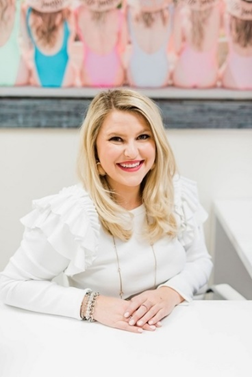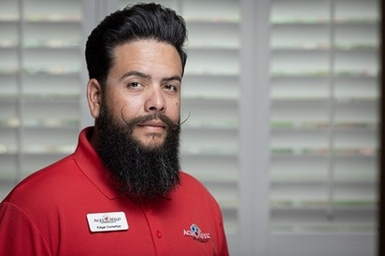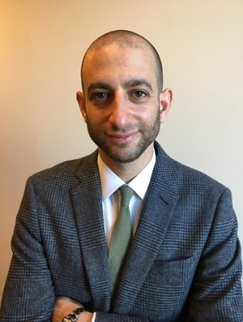The COVID-19 pandemic is a public health disaster and economic crisis rolled into one event. For many small business owners, the prospect of closing permanently became very real overnight. Business.com followed up with three entrepreneurs, whom we previously profiled regarding their experiences with the U.S. Small Business Administration's (SBA) 7(a) and 7(b) loan programs. Through the next weeks and months, we will follow their stories as they fight for the survival of their business in a world combating COVID-19.
Looking for resources on how to help your small business through the COVID-19 pandemic? Visit the business.com COVID-19 resource page.
As May approached and nationwide lockdowns continued into their second month, many entrepreneurs were still waiting for funding from emergency loan programs established under the Coronavirus Aid, Relief, and Economic Security (CARES) Act. Meanwhile, they were forced to get creative to deal with sharply declining revenues.
Kendra Eaton, owner of Sprinkled with Pink
Owner Kendra Eaton applied for funding through the SBA Paycheck Protection Program, as well as the Economic Injury Disaster Loan (EIDL) program. After receiving a $7,000 EIDL Advance grant ($1,000 per employee,) she heard very little information regarding the status of her loan applications. Eaton was forced to furlough all five part-time employees as a result.
"If we don't get this funding, we'll have to reduce our workforce," Eaton said in a previous interview. "We've already laid off five part-time employees … but if we do get it, we can bring back our staff, pay our rent and push our business forward to be successful coming out of all this."
It's not just declining revenues that have impacted the business, Eaton said. Several big contracts were in the works but fell through when the pandemic took its toll.
"Those are never coming back," Eaton said.
But Sprinkled with Pink is a creative business, literally, and so Eaton decided it was time to pivot. While waiting for more information regarding her loan applications, she took the business in a new direction.
"We pivoted our collections into remote celebrations," Eaton said. "We're doing custom party packages; we have a Tiger King collection … we're just pushing forward."
The delay in funding hurt deeply, though, and the business has been forced to carry on with just two employees.
"It's a huge strain, because as a production company, we make every order that goes out the door," Eaton said. "Having two people do the job of seven has been challenging, but we're still operating on a five-day turnaround time, which is really good for custom items."
Eaton said she applied for funding through multiple lenders since the loan programs were launched, including Chase, PayPal and Lendio. Little to no information was available through Chase, Eaton said. PayPal rejected her application because of an identity verification issue. When she applied through Lendio, a representative advised her to apply through other lenders as well.
"Lendio were the only humans I spoke to," she said. "The guy was very knowledgeable and said they had a lot of issues getting loans through. He advised me to apply anywhere I could."
On April 24, Eaton was forced to furlough one of the company's two full-time employees. In a last-ditch effort, she applied through two more lenders – Kabbage and BlueVine – on April 29. Within 24 hours, Eaton received some long-awaited good news.
"I applied through BlueVine [on April 29] and got documents to sign this morning," she said. "It said we would get the deposit within 10 days.
"I won't believe it until it's actually in my account," she added.
When the funding comes in, Eaton said she is hopeful she can bring back her full-time employee immediately and determine the best way to safely bring other staff back without potentially exposing anyone to COVID-19.
"I'm going to crunch the numbers," she said. "This gets us through the next eight weeks, but what does it mean for the rest of the year?"
For now, Eaton said the business has a preliminary financial plan through the end of 2020. While the funding has not yet been received, she said she remains very optimistic about the future.
"We will definitely continue [to grow and succeed]," she said. "We cut costs quickly and acted swiftly. We pivoted and brought revenue up."
For other entrepreneurs seeking approval under the SBA loan programs, Eaton offered the following advice:
"This whole process is just horrendous. Just keep trying," she said. "Don't apply at one lender and think that it's taken care of. We applied at six and the last one came through in just 24 hours. Plan for [the] worst-case scenario; don't be counting on these funds. This can teach us all a lesson as business owners … we should be prepared for this to happen again because it could."
Editor's note: Looking for a small business loan? Fill out the questionnaire below to have our vendor partners contact you about your needs.
Edgar Comellas, owner of Aces Wild Casino Parties
Aces Wild Casino Parties is an entertainment rental business based in Orlando. Aces Wild brings the casino to your event, including dealer tables, dealers, decorations and even exotic animals.
Aces Wild Casino Parties employs three full-time employees and works with about 80 independent contractors at any given time, Comellas said.
Comellas applied for a forgivable Paycheck Protection Program loan through Bank of America on April 6, three days after the programs launched, and Merrill Lynch on April 9. Comellas received a grant through the EIDL Advance program, which provides $1,000 per employee. He was also approved for a $69,000 EIDL loan, which he applied directly through the SBA.
"[The EIDL funding] sounds good, but not when you had a quarter-million dollars in sales projected through the end of the year," he said. "I'm still holding onto it; I don't want to dip into it."
As for the Paycheck Protection Program loan applications, Comellas remains in the dark.
"I was sent an email from Bank of America stating all the paperwork was in and everything was good to go. It said as soon as the SBA released the funds, the application would be moved," he said. "The email even says I don't need to do anything else; no action required. This was sent to me before funding was released."
[See our related story to learn more about the additional funding for the Paycheck Protection Program.]
Comellas said he has repeatedly tried to call both banks for additional information but is regularly sent to voicemail boxes that are either full or not set up properly. He said he has received no responses from either bank about the status of his loan applications.
"If the PPP funding comes through, EIDL will go into capital expenses and marketing," he said, adding that the Paycheck Protection Program loan would be used for wages. "One issue is even if I get my money right now … I have to use it within eight weeks. My bank says there will be more guidelines from the SBA on reimbursement by the end of June."
The SBA previously said that at least 75% of Paycheck Protection Program funding should be used on salaries and/or wages, while no more than 25% should be used for qualified expenses like rent, mortgage and utility payments in order to receive forgiveness. However, guidance is limited and additional details on forgiveness are expected in the coming weeks.
For Comellas, the delay has prompted a spurt of creativity.
"It has forced me to implement some new ideas and venture into new products," Comellas said. "I'm pivoting into more online, web conferencing casino parties."
Comellas said he organizes the events via Zoom video conference, allowing clients to book events online. He uses different Zoom conference rooms for different tables; for example, blackjack is in one conference room, while poker takes place in another.
Despite the challenges and uncertainty, Comellas remains optimistic.
"Personally, I would say I am well," he said. "I think it's because my family is so supportive at home. I work out every day. I created a routine where I do a little bit of work and then have a little bit of me time."
"I look at it as I have two months of a sabbatical, basically," he added. "So, what do I do with it? I implement virtual casino parties, which can be a new add-on service. I am thinking about what has happened through this time that we can take with us and not only learn [from] but also use to create future value."
For small business owners struggling to get funding and remain operational during the COVID-19 pandemic, Comellas offered the following recommendations:
"This is not a sprint back to economic health, this is a marathon," Comellas said. "It's going to take time, and it's going to be small steps and it's going to hurt. It's going to hurt business owners and the person who just wants to go out and have fun. Just be aware, be well-read, be educated, and be an advocate in the sense that you do whatever you can to help out and be part of the community."
Todd Spodek, managing partner of Spodek Law Group PC
Managing partner Todd Spodek, who is a business.com community member, was approved for a Paycheck Protection Program loan under the initial round of funding for the program. He applied through Chase bank on April 6 and received $200,000 by April 17.
"When I received that funding, it was like manna from heaven," Spodek said in a previous interview. "We're all stable now. We have six months to carry the firm one way or another."
With emergency funding out of the way, Spodek told business.com he has been focused on business as (sort of) usual. He has renegotiated some expenses, including rent payments on the firm's three offices, to help ease the balance sheet in the near term. Between the funding and cost-cutting measures, Spodek has been able to retain all of his full-time employees.
"Essentially, the firm has been moving along as usual," Spodek said. "All our active cases, we're working on nonstop. All the leads that come in for new business, we're talking to everybody and helping anyone we can, but we are not focusing on new business right now. I think time is better spent keeping my staff morale high and reaching out to existing clients and past clients … just to check in on everyone."
In addition, Spodek said the firm has established a pro bono program for first responders in New York City, including sanitation workers and healthcare workers.
"It's our way of giving back," Spodek said. "It's the right thing to do for people risking their lives to make New York City a better place."
Spodek also said he's been using this time to focus on areas of his business that typically get overlooked while provision of services and lead generation take priority.
"There are ancillary areas of running a business you never really focus on when you're busy," Spodek said. "Things like accounting and bookkeeping, marketing and advertising, utilities … We've really kind of looked at all these expenses, gone through and cut the unnecessary ones, and negotiated better deals for the ones that are necessary."
Despite the challenging economic times, Spodek is thinking ahead now that he has received the funding needed to stabilize the law firm. He is eyeing an expansion in the relatively near future.
"I've arranged for additional financing," Spodek said, adding that he sought funding through the SBA Express Bridge Loan program. "I think there will be a large pool of talented lawyers and support staff out of work, and I want to have the resources to hire them at that time."
Spodek is not without his concerns for the future, though. While courts remain closed and the firm focuses on whatever work it is able to do, new business will eventually become a necessity.
"Obviously, at some point, the firm needs to get back into a revenue cycle where there is cash flow every month to cover expenses," Spodek said. "At some point, if the revenue doesn't improve, there will be no choice but to issue pay cuts or lay people off."
For now, though, Spodek said that remains a manageable concern. He said the firm revisits that decision every month, but so far, there is no indication that there is an imminent need for those drastic measures.
"I don't anticipate making that decision until at least September or October," Spodek said. "And the legal market slows down in the summer no matter what … Our business model and budget for the year takes that into consideration."
For other businesses facing similar challenges that Spodek has navigated with his firm, he recommended the following: "Business owners should use this time efficiently and to their advantage," he said. "That's what I've been trying to do, and I think it is really working. Our strategy of reaching out to old clients has been paying dividends, and the pro bono first responder program is working out great. I'm excited about the next couple of months; I think we'll be a sleeker Spodek Law Group."
Are you interested in telling your COVID-19 story? Join the ongoing conversation on business.com's community.



